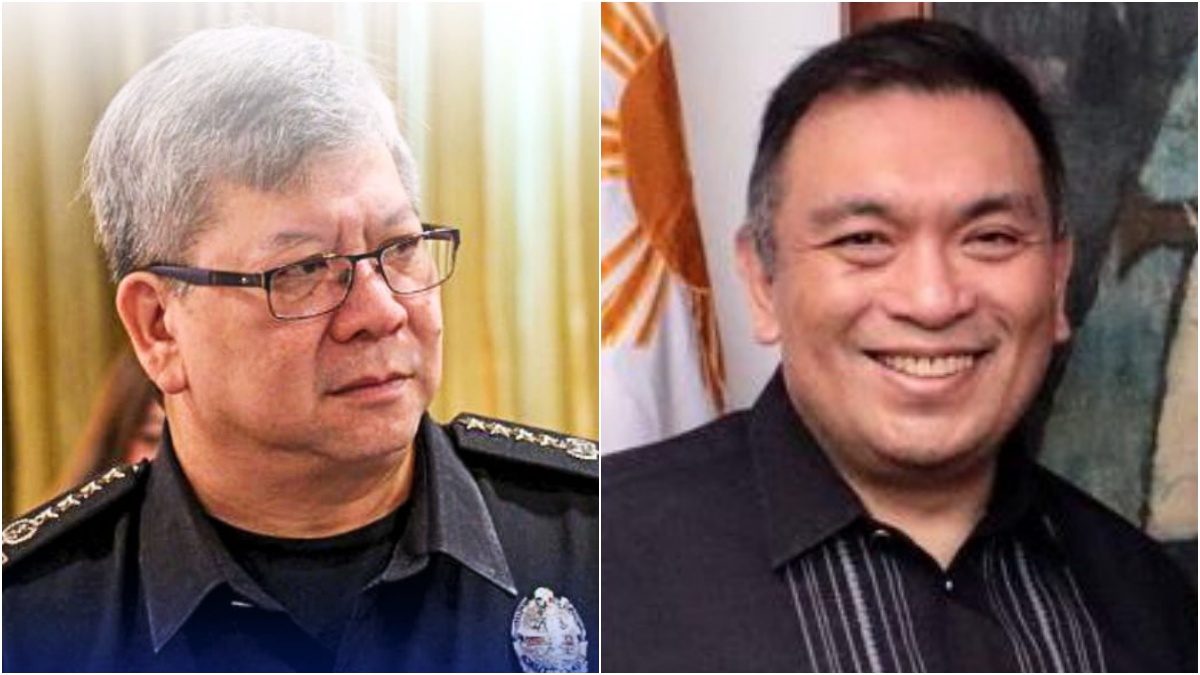16,200 Chinese granted student visas

Immigration Commissioner Norman Tansingco and Foreign Affairs Undersecretary Jesus Domingo. —Photo from the Bureau of Immigration and the Department of Foreign Affairs
MANILA, Philippines — Nearly 16,200 Chinese nationals who entered the Philippines as tourists were granted student visas by the Bureau of Immigration (BI) last year.
The practice of converting tourist visas to student visas has been allowed since the [President Joseph] Estrada administration in 2000.
The Inter-Agency Committee on Foreign Students (IACFS) will convene on May 13 to address the “rise in the number of Chinese students” in the country, according to Immigration Commissioner Norman Tansingco.
READ: BI: Foreign students can face intel probe for suspicious acts
He said he requested the Commission on Higher Education (CHEd), which chairs the IACFS, to call for a meeting and take “urgent inter-agency action” on the large presence of Chinese nationals with student visas in Tuguegarao City.
Based on its records, the immigration bureau has granted students visas to 1,516 Chinese nationals in Cagayan, “all endorsed by a major Philippine university,” which the bureau did not identify.
READ: Most Chinese student visa holders in Metro Manila, not Cagayan—BI
The bureau said upon verification, only 485 of these Chinese nationals with student visas are enrolled as of April.
Of the 485 enrolled Chinese students, only 96 attend their classes on-site while the vast majority of 389 take their classes remotely.
“We have requested the high-level meeting [of the IACFS] to reiterate our previous requests for immediate and regular joint inspections given new developments in national security concerns,” Tansingco said in a statement on Sunday.
“We also believe it is high time that the inter-agency be active in matters of national security by including security assessment as a regular agenda in meetings,” he said.
24,189 student visas
According to the BI, it issued 24,189 student visas to various foreigners last year.
About 66 percent or 16,190 student visas were issued to Chinese nationals, most of whom were enrolled in Metro Manila.
Tansingco said China is the top source of foreign students in most countries including the United States, where 289,526 Chinese nationals have been given student visas.
He cited Malaysia and Thailand, which issued around 130,000 and 20,000 student visas, respectively, to Chinese nationals in 2022.
According to the Department of Foreign Affairs (DFA), which co-chairs the IACFS, most student visas are acquired after the foreigner has entered the country as a tourist.
The DFA issues student visas through the country’s diplomatic posts before the foreign student has entered the country.
“The popular way is to come in on a tourist visa and have it converted by the BI [to student visa] when they get here,” Foreign Undersecretary for Civilian Security and Consular Affairs Jesus Domingo said at a press briefing on Thursday.
“I’m afraid you have to ask the BI because most of the [foreign] students, not just Chinese, get visa through conversion because it’s easier. Yes, this is a troubling matter but this happens domestically,” he added.
23-year-old rules
The governing law on foreign students is Executive Order No. 285 signed on Sept. 4, 2000 by then-President Estrada.
The order created the IACFS chaired by CHEd with the DFA as co-chair. Its members are the BI, National Bureau of Investigation, National Intelligence Coordinating Agency (Nica), and the Department of Education.
To remain accredited to accept foreign students, schools are required to submit regular reports of their foreign students to the CHEd, BI, NBI, and Nica.
“Authorization for conversion from tourist’s visa category to that of a student visa or issuance of special study permit is hereby restored,” the EO also said.
Malacañang ordered concerned schools and members of the IACFS to assist foreign tourists who are already in the country and who apply for conversion of their tourist visas to student visas — provided they had complied with all prerequisites and “safeguards to national security concerns/interests are adequately and appropriately undertaken by all concerned agencies.”